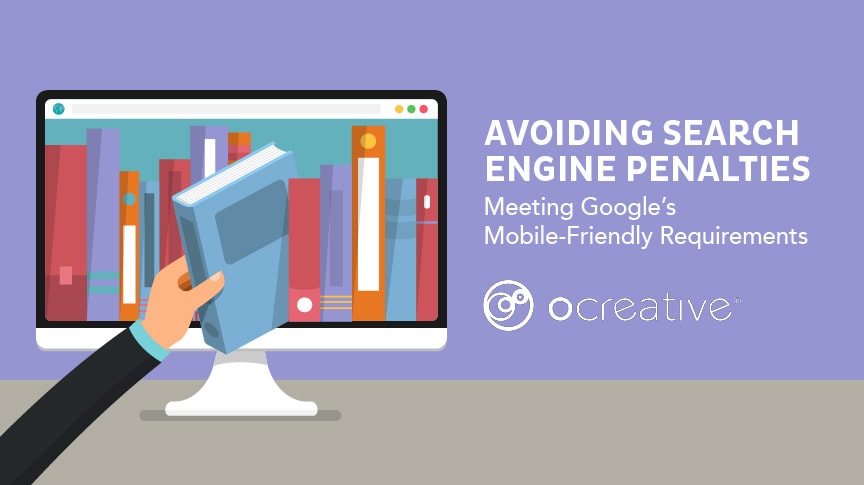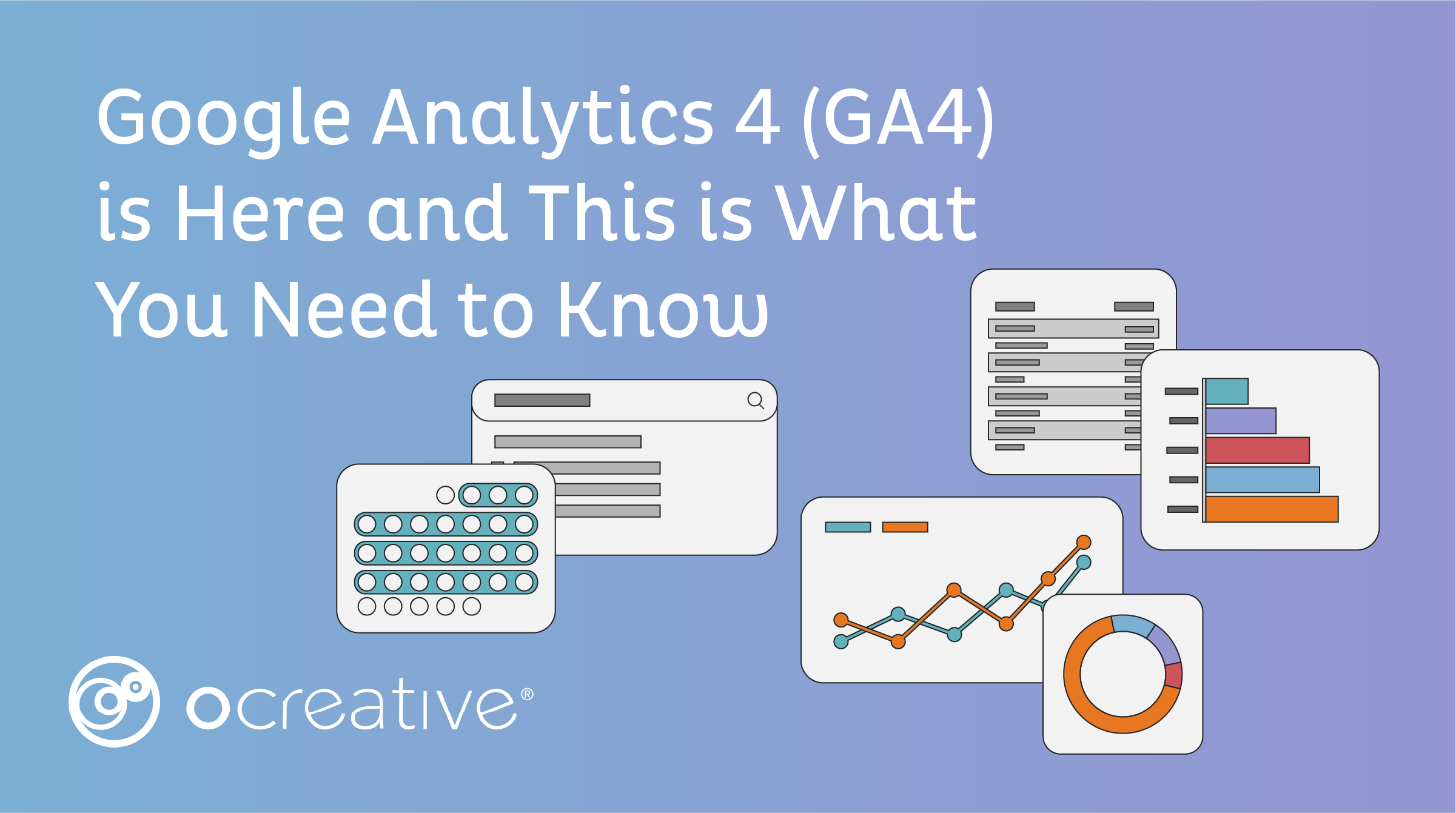Have you ever wondered why Google gives you the results it does for your searches? It’s all based on the mechanism of a search engine. Search engines like Google, Yahoo, and Bing “exist to discover, understand, and organize the internet’s content in order to offer the most relevant results to the questions searchers are asking.” (MOZ) These search engines work on a three-step process to review all internet data, define it, and then offer it up in a most relevant to least relevant list for users to explore.
Here’s the three-step process:

1 – Crawling – Search engines use “bots” aka highly-advanced programs to review the code and content of every URL (this is called crawling). Much like a bookstore seeks out new books, magazines, and content to put on their shelves, search engine bots seek out new websites to add to their collective offerings.

2 – Indexing– Every time a search engine crawls the internet and finds new URLs, it places them in an index to be referenced by users. Once a webpage has been indexed, it’s now available to be displayed as a search result for relevant search words and phrases. Following our bookstore metaphor, this indexing system is similar to bookstores reviewing the content of books, determining if they are any good, and then putting them on the correct shelves for readers to find easily.

3 – Ranking– Once a search engine receives a query (the questions or key words we put in the search bar) it combs through all of the indexed webpages to find the content that best matches a search and orders all the results from most relevant to least relevant. If we go back to our bookstore idea, this is similar to speaking to a clerk and getting help finding what you need on a series of shelves that have been organized by topic (young adult, historical fiction, murder mystery, etc.)

Getting Your Website Indexed
As you can see, getting a search engine to index your site (IE – to put your book on their shelves) is the most important factor in getting your website out to users looking for products, services, or information like yours. But what do search engines look for when determining what websites are worthy of being indexed and which ones stay off of search results?
Meeting the Gold Standard for Indexing
Search engines want to provide the best experience possible for users, so more people use their search engine over other options. More users mean more sponsorships, advertising dollars, and partnerships for search engines. While not all search engines are created equal, it is best practice to look at Google as the gold standard for search engine indexing. Here’s why: “Google has dominated the search engine market, maintaining an 87.35 percent market share as of January 2020.” (Statista) Think about it, when someone asks you a question and you don’t know the answer, what’s your response? “Hang on, I’ll Google it.”
4 Key Factors in Getting Noticed by Google
While Google and other search engines use an incredibly complex algorithm to determine search results, there are 4 key factors that can help all websites get indexed by Google. And guess what? It all boils down to offering the best user experience possible.

1 – Using the Right Key Words in Your Content – Google uses advanced programming to understand human language and to match results based on how search queries are entered. It recognizes key words in a search query and matches it to content that uses these key words in the same context and structure. It’s more than using descriptive words that explain your product, service, or the information you’d like to share, it’s about understanding what your audience uses to describe them. This is where marketing agencies come into play – many agencies like Ocreative, have digital marketing teams dedicated to understanding this algorithm and identifying the best ways to use search words and phrases within content, headers, alternative text, etc. to get search engines to pick up your site.

2 – Providing Quality Content – Going back to providing the best user experience possible, search engines like Google, want to provide users with reliable resources for their queries. Search algorithms are designed to identify signals that can help determine which pages demonstrate expertise, authoritativeness, and trustworthiness on a given topic. (Google) They use many signals that demonstrate these characteristics including external linking (PageRank), certified sources, amount of content, limited to no duplicate content, and no spam-like features (pop-ups, ads, gated articles, forced information gathering, etc.) to name a few. The requirements for quality content change as the internet and users shift their patterns which is why it’s important to work with someone well versed in search engine optimization to keep your website on track.

3 – Enhancing the Usability of Webpages – Search engines, especially Google, closely evaluate whether webpages are easy to use. In fact, according to Google “When we identify persistent user pain points, we develop algorithms to promote more usable pages over less usable ones.” (Google) Pages need to appear correctly in different browsers, must be designed for all device types (like phones, tablets, desktops, and laptops), and must load quickly for all users, despite varying internet speeds. Google’s most recent requirement, as of March 2020, is a set of strict guidelines that require all websites to be mobile-friendly in order to be indexed. For more information, check out their article Announcing Mobile First Indexing for the Whole Web.

4 – Identifying Relevant Geographic Locations for Your Site – search engines also pair search queries with results based on their location. If your website offers products or services on a national scale, your website needs to reflect this through content and settings, in order to show up beyond the radius around your headquarters. Transversely, if you are a local business, you want to highly-target your search query area to drive quality local traffic.
Getting Ahead of the Competition
We understand this is a lot to take in. Search engines are continuously changing their requirements based on new developments in website technology, user trends, and even government restrictions. Staying on top of these shifting requirements and developing strategies to continually enhance websites to meet new needs is all part of an effective SEO strategy. Your website is like a garden, you can put in good soil, plant great seeds, and make sure there’s sunlight, but you’ve still got to water it. If you’re interested in learning how your website stacks up against the competition, reach out to Ocreative for an evaluation and strategy session today!
About Us
Ocreative is a Milwaukee marketing agency, with expertise and broad experience in developing digital marketing strategies, and growing their online presence, for their clients. The company’s core values include offering the highest level of customer service, award-worthy quality, and performance that surpasses client expectations. Ocreative is located just outside Milwaukee, and works with clients locally, nationally, and globally. Their clients have access to some of the most fun and knowledgeable professionals around – ones who inspire, educate, and problem solve. The agency provides marketing and brand strategy, advertising and design, website design and social media, and video expertise to their clients, fulfilling their desire for business growth, and their aspiration to make a mark on their industry.





